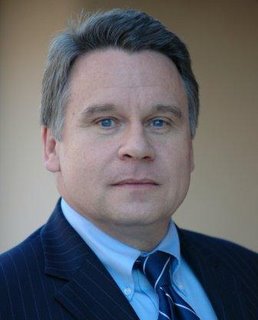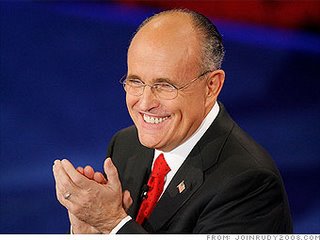
LONDON, U.K. - Congressman Chris Smith, a senior member of the House Foreign Affairs Committee and leading human rights lawmaker, delivered the following address Tuesday at “The London Conference on Combating Anti-Semitism,” held by the U.K.’s Foreign and Commonwealth Office in conjunction with the Inter-Parliamentary Coalition for Combating Anti-Semitism, of which the Congressman is a founding member:
Special thanks to Chairman Mann, his wife Joanna, his dedicated staff and colleagues for the extraordinary leadership in making the London Conference a huge success and for launching the ICCA.
In 1982, during my first term in Congress, on a trip arranged by friends like David Harris, I traveled with the National Conference on Soviet Jewry (NCSJ) to Moscow and Leningrad to meet Jewish refuseniks in their homes and to engage Soviet leaders.
For hours on end, our delegation heard stories of Soviet physical and mental abuse, systematic harassment, gulags and psychiatric prisons, and an array of seemingly wanton, brutal acts of anti-Semitism.
To apply for an exit visa—a universally-recognized human right, which at least on paper the Soviet Union had recognized—was to invite the cruelty and wrath of the KGB and other small-minded, morally stunted thugs.
To courageously seek freedom rendered the refuseniks ineligible for employment in Lenin’s farcical “workers’ paradise.”
The Soviet system, militantly atheistic and morally incoherent, wouldn’t let you leave, but didn’t want you to stay either—a bizarre paradox.
In Dr. Alexander Lerner’s Moscow apartment, our delegation heard Sharansky’s mother admonish us to do more for her son, because his life was in jeopardy.
“Raise Anatoly’s situation with the highest officials,” she asked us. Which of course we did.
To a new 27-year-old Congressman, however, it was all very bewildering and deeply troubling—why do they hate the Jews? Why the anti-Semitic obsession?
A few years later, and shortly after Sharansky’s release, I visited Perm camp 35 in the Ural Mountains—a horrific gulag filled with prisoners of conscience. While there, I saw the solitary punishment cell called the Shizu—where Natan Sharansky suffered and persevered. To the utter dismay of Lt. Col. Osin—Perm Camp’s KGB warden—a colleague and I interviewed and videotaped most of the prisoners and pushed for their release. In time, they all got out, following the path paved by Natan Sharansky, one of the bravest, wisest, and most noble men on earth.
Then, almost suddenly, the Soviet Union and the Warsaw Pact collapsed and hope and expectation soared. A new day dawned—the matriculation of several dictatorships to democracy, respect for human rights, the peace dividend, and a better future for Jews.
It didn’t take long, however, to be disappointed on the latter. In 1995 I chaired a Congressional hearing entitled, The Rising Tide of Global Anti-Semitism, as it was becoming increasingly clear that the status of Jews in many countries was actually deteriorating.
At another Congressional hearing I chaired in 2002, Dr. Shimon Samuels of the Wiesenthal Center in Paris said, “The Holocaust for 30 years after the war acted as a protective Teflon against blatant anti-Semitic expression (especially in Europe). That Teflon has eroded, and what was considered distasteful and politically incorrect is becoming simply an opinion.” He warned ominously, “cocktail chatter at fine English dinners can end as Molotov cocktails against synagogues.”
In response to what appeared to be a sudden, frightening spike in anti-Semitism in several countries, including my own, we first proposed the idea of a conference on combating anti-Semitism under the auspices of the Organization for Security and Co-operation in Europe (OSCE).
Convinced that we had an escalating crisis on our hands, our delegation teamed with several OSCE partners—including Gert Weisskirchen from Germany and Senator Jerry Grafstein of Canada—to push for action and reform. Many of you in this room played leading roles.
Those efforts led directly to a series of high-level OSCE conferences on combating anti-Semitism, which took place in Vienna, Berlin, Cordoba, and Bucharest.
Since then—and especially at the Maastricht December 03 Ministerial—OSCE Participating States made solemn, tangible commitments to put noble words into concrete action.
Today, in some countries, progress has indeed been made, and without collective action things might be noticeably worse. Deterrence is always difficult to measure with any accuracy. Still, anti-Semitic acts have not abated in other countries, and in some the situation has actually gotten worse.
Today, here in London, grateful to our British hosts, and especially to the exemplary work of the Right Honorable John Mann, we gather to confront and, to the best of our abilities, combat this highly disturbing resurgence of anti-Semitism, which has been further exacerbated by the recent hostilities in Gaza.
Unparalleled since the dark days of the Second World War, Jewish communities around the world are facing violent attacks against synagogues, Jewish cultural sites, cemeteries and individuals. Anti-Semitism is an ugly reality that won’t go away by ignoring or wishing it away. It must be defeated.
This increase in violence is a chilling reminder that our societies still harbor a dangerous collection of bigots and racists who hate Jews.
Thus we gather to enlighten, motivate, share best practices, and organize legislative working groups with particular emphasis on what practical steps we ought to take, not just to mitigate this centuries-old obsession, but to crush this pernicious form of hatred.
We hope the collective wisdom gleaned from this conference, the working groups, and the London Declaration, will serve as a blueprint for serious and bold action. Our words here in London must be repeated at home, with frequency, passion and tenacity and matched—and even exceeded—by deeds.
If our fight is to succeed, we need government officials at all levels to denounce, without hesitation or delay, anti-Semitic acts wherever and whenever they occur. No exceptions. The purveyors of hate never take a holiday or grow weary, nor should we. Holocaust remembrance and tolerance education must dramatically expand, and we need to ensure that our respective laws punish those who hate and incite violence against Jews.
The 18th-century British statesman and philosopher Edmund Burke prophetically said, “The only thing necessary for evil to triumph is for good people to do nothing.”
When political leaders fail to denounce anti-Semitic violence and slurs, the void is not only demoralizing to the victims but silence actually enables the wrongdoing. Silence by elected officials in particular conveys approval—or at least acquiescence—and can contribute to a climate of fear and a sense of vulnerability.
For its part, the United States has been collecting hate crime information for almost 20 years. Many of the 50 states in the U.S. have enacted their own laws addressing hate crimes. Congress passed the federal Hate Crimes Statistics Act in 1990, which requires the Attorney General to collect data each year about crimes that “manifest evidence of prejudice.” The most recent report available—the 2007 Hate Crimes Statistics Report—documented that religious bias motivated 1,477 offenses and affected 1,628 victims. Of this total, a whopping 68% were anti-Semitic in nature. By way of contrast 9% were anti-Muslim, 4.5% anti-Catholic, 4% anti-Protestant, and this, despite the fact that only 1.7% of the U.S. population, or about 6 million people, are Jewish.
One positive consequence of reporting is the impact it has on police. When solid reporting is coupled with police training fewer acts of anti-Semitic violence are likely to occur. The public sharing of this information enhances accountability and allows interested communities and NGOs to craft and implement strategies.
Meanwhile, on another level of reporting, many victims of anti-Semitic acts in all countries fail to report the crime, perhaps out of fear of retaliation, or lack of awareness as to how to register such a complaint. That has got to change.
There is a compelling need to strengthen the OSCE Law Enforcement Officer Program on Combatting Hate Crime—a novel, effective program whereby police train police to recognize and investigate hate crime, including anti-Semitic acts. Other regions of the world should borrow the concept.
Enhanced penalties—for crimes committed against people or property where the motive, in whole or in part, was based on religious hatred—is key to properly punishing or deterring these types of crimes.
The Hate Crimes Sentencing Enhancement Act signed into law in the U.S. in 1994 directs the U.S. Sentencing Commission to provide a sentencing enhancement of “not less than 3 offense levels for offenses that the finder of fact at trial determines beyond a reasonable doubt are hate crimes.” Enhanced penalties makes clear that we mean business.
Finally, if we are to protect our children from the evil of anti-Semitism, we must re-educate ourselves and systematically educate our children. While that starts in our homes, the classroom must be the incubator of tolerance. It seems to me that only the most hardened racist can remain unmoved by Holocaust education and remembrance. Only the most crass, evil, and prejudiced among us can study the horrors of the Holocaust and not cry out: Never again!
Abraham Lincoln once said: “To sin by silence when they should protest, makes cowards of men.” Silence, my friends, is not an option. Nor is inaction.
 RSS
RSS


